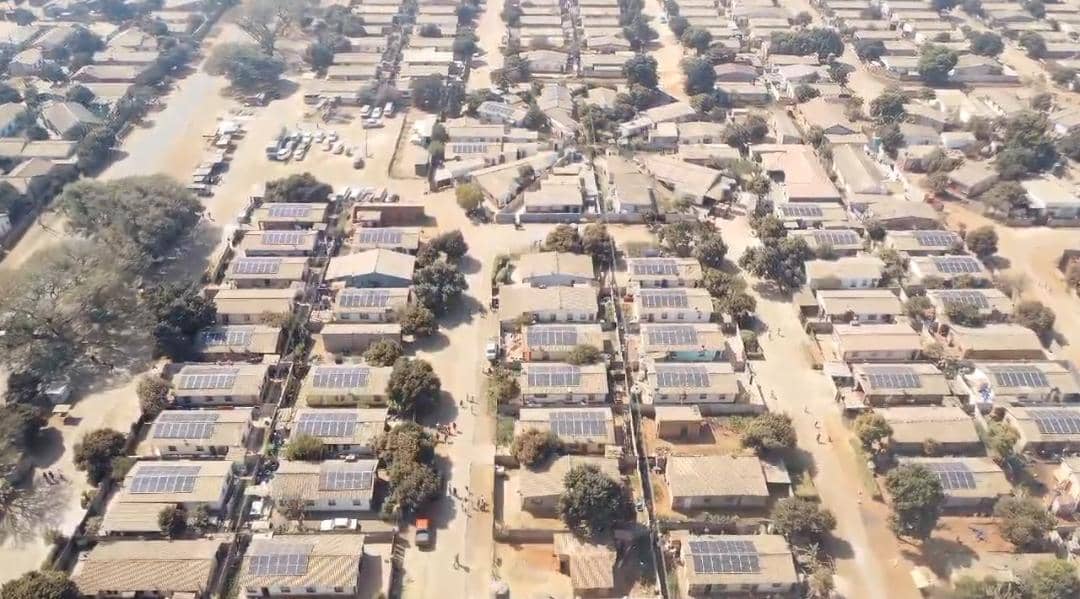The government has approved the implementation of the Presidential Rural Solarisation Project, which will provide sustainable solar energy to over one million rural households across eight provinces.
Information Minister Dr. Jenfan Muswere announced during a post-Cabinet briefing that the project aims to install solar power in 200,000 households annually over the next five years, starting in 2025.
The initiative is expected to transform rural livelihoods by delivering reliable renewable energy.
Zimbabwe is among top countries with good climate for solar systems, seven to eight usable sunlight per day.
According to energy experts, in 2025, renewables will become the largest source of electricity generation.
They also believe that in 2028, renewable energy sources will account for over 42% of global electricity generation, with the share of wind and solar PV doubling to 25%.
In Zimbabwe renewable energy policies and regulations are set out in the National Energy Policy, 2012 (NEP) and the National Renewable Energy Policy, 2019 (NREP).
The NEP recognised the importance of developing a comprehensive renewable energy policy in order to enhance the contribution of renewable energy to the overall energy supply in Zimbabwe.
The NREP sets out in detail the ambitious targets of the government in the development of renewable energy and its contribution to the overall electricity supply in Zimbabwe.
The NREP defines “renewable energy” as referring to “small hydro (equal to or less than 30MW), solar, wind, geothermal, biofuels and biomass and other such clean energy sources approved by the Ministry responsible for Energy in Zimbabwe”.
The definition leaves room for the Ministry of Energy to designate other energy sources as renewable energy at a future date. The Energy Regulatory Authority Act (Chapter 13:23) (ZERA Act), which establishes the Zimbabwe Energy Regulatory Authority (ZERA), has a statutory definition of renewable energy.
Renewable energy is defined in the ZERA Act as “energy generated from natural resources such as sunlight, wind, rain, water, tides, geothermal heat, plants and biomass which are naturally replenished, and “renewable energy source” shall be construed accordingly”.
The definition is comprehensive and seeks to identify renewable energy by having reference to the nature of its sources and the key characteristic of it being capable of replenishment.
This naturally excludes from its scope energy derived from coal, for instance.
For comments, Feedback and Opinions do get in touch with our editor on WhatsApp: +44 7949 297606.

For comments, Feedback and Opinions do get in touch with our editor on WhatsApp: +44 7949 297606.
